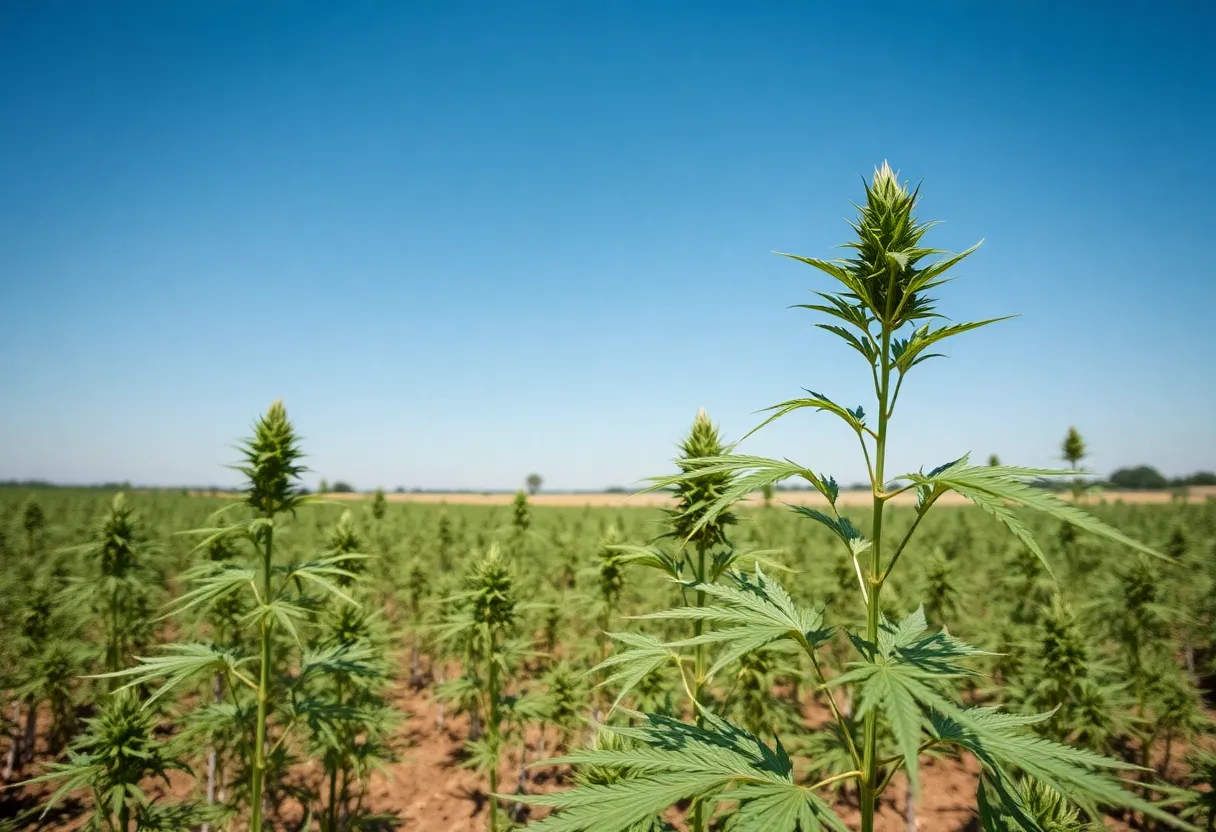News Summary
The Texas hemp industry faces uncertainty as Senate Bill 3, which could ban all THC products, awaits action from Governor Abbott. The bill has sparked significant concern among local businesses, as THC products account for a substantial portion of their sales. A grassroots movement has emerged, with over 100,000 signers opposing the bill, urging for regulations instead of an outright ban. The outcome of this legislative decision could have far-reaching effects on the $8 billion hemp industry and the livelihoods of many Texans.
Texas is facing significant legislative changes as Senate Bill 3, which proposes a ban on all THC products, sits on Governor Greg Abbott’s desk. The bill seeks to impose new regulations on consumable hemp products, effectively limiting access to THC while allowing exemptions for non-intoxicating alternatives such as CBD and CBG. This legislative measure has ignited widespread concern among businesses in the hemp sector, many of which rely heavily on THC products for revenue.
Lt. Gov. Dan Patrick has been a major supporter of Senate Bill 3, emphasizing the health risks associated with unregulated THC products for both children and adults. During a recent press conference, Patrick framed the proposed ban as a protective action for public health, claiming it addresses a critical issue of product safety, particularly regarding potential harm to younger consumers.
Governor Abbott is faced with a deadline of June 22 to make a decision on SB 3, having the options to sign, veto, or allow the bill to become law without his signature. He has also indicated that he will weigh the implications of this bill against those of House Bill 46, which seeks to expand the state’s medical marijuana program and would allow a wider range of conditions for treatment involving low-THC cannabis.
Businesses within the Texas hemp sector are bracing for potential fallout from SB 3. Reports indicate that a substantial portion—up to 70%—of sales for some retailers comes from THC products. A store manager expressed concerns over the potential financial ruin that could follow if the bill passes, emphasizing the reliance of many customers, especially veterans, on THC products for medical relief.
Opposition to Senate Bill 3 is mounting, with over 100,000 petitioners urging Governor Abbott to veto the proposed ban. Critics argue that adequate regulations already exist to ensure product safety, casting doubt on the necessity of an outright prohibition. In contrast, Patrick has accused the hemp industry of inappropriate marketing towards minors, asserting that many states have pursued more regulated frameworks instead of complete bans.
The Texas hemp industry, estimated to be worth approximately $8 billion and supporting around 50,000 jobs, has warned that the introduction of SB 3 could lead to significant job losses and impact consumers’ access to safe, regulated products. This situation has resulted in a divide among stakeholders, as illustrated by the dueling press conferences held at the state Capitol. Advocates for the industry are calling for regulation rather than prohibition to help ensure product safety without crippling businesses and limiting consumer choices.
House Bill 46 proposes a significant expansion to the Texas Compassionate Use Program, potentially increasing eligible medical conditions for low-THC cannabis treatment, while also facilitating broader access through more dispensary licenses. This competing legislation reflects differing approaches to cannabis regulation within the state and highlights the complexities of the ongoing debate surrounding cannabis policy in Texas.
As Patrick expressed confidence that Governor Abbott would endorse the THC ban, Abbott’s ambiguous stance raises questions about the future of cannabis regulation in Texas. If signed into law, SB 3 will take effect on September 1, 2025, leading to considerable changes in the market and consumer access to THC products.
Amidst these mounting pressures, consumers and industry leaders alike are voicing concerns that a ban on THC products will only result in an influx of unregulated and potentially unsafe alternatives. As the situation develops, the balance between public health considerations and economic impact remains a focal point for Texas lawmakers.
Deeper Dive: News & Info About This Topic
- Cannabis Business Times: Texas Governor Has 20 Days to Act on Bills
- KVUE: Texas THC Ban Press Conferences
- Statesman: THC Ban Threatens Cannabis Industry
- Wikipedia: Cannabis in the United States
- FOX4 News: Last Day for Texas THC Ban
- Encyclopedia Britannica: Cannabis Plant
Author: STAFF HERE GEORGETOWN
The GEORGETOWN STAFF WRITER represents the experienced team at HEREgeorgetown.com, your go-to source for actionable local news and information in Georgetown, Williamson County, and beyond. Specializing in "news you can use," we cover essential topics like product reviews for personal and business needs, local business directories, politics, real estate trends, neighborhood insights, and state news affecting the area—with deep expertise drawn from years of dedicated reporting and strong community input, including local press releases and business updates. We deliver top reporting on high-value events such as the Red Poppy Festival, Georgetown Swirl, and Christmas Stroll. Our coverage extends to key organizations like the Georgetown Chamber of Commerce and the Downtown Georgetown Association, plus leading businesses in manufacturing and tourism that power the local economy such as local wineries and historic downtown shops. As part of the broader HERE network, including HEREaustin.com, HEREcollegestation.com, HEREdallas.com, HEREhouston.com, HEREgeorgetown.com, and HEREsanantonio.com, we provide comprehensive, credible insights into Texas's dynamic landscape.






